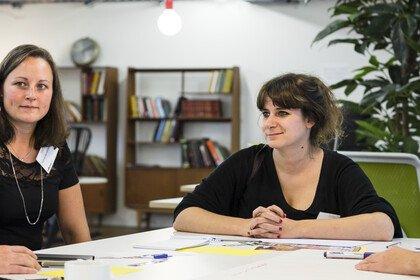
What researchers think about the culture they work in
Thousands of researchers have taken part in the largest ever survey into experiences of research culture. The results show it's time for change – everyone in the research community can help to reimagine research.
What’s inside
- perspectives on and experiences of research culture, based on a survey of more than 4,000 researchers in the UK and globally, and nearly 100 in-depth interviews.
Who this is for
- researchers
- research leaders
- funders
- policy makers
Key findings
Researchers are passionate and proud about their work, but have concerns about job security
- 84% of researchers are proud to work in the research community, but only 29% feel secure pursuing a research career.
Poor research culture is leading to unhealthy competition, bullying and harassment, and mental health issues
- 78% of researchers think that high levels of competition have created unkind and aggressive conditions.
- Nearly two-thirds of researchers (61%) have witnessed bullying or harassment, and 43% have experienced it themselves. Just one in three (37%) feel comfortable speaking up, with many doubting appropriate action will be taken.
- Just over half of researchers (53%) have sought, or have wanted to seek, professional help for depression or anxiety.
There’s a disconnect between researchers’ perception of their management skills and their abilities in practice
- 80% of researchers who manage people say they have the knowledge and skills to manage a diverse team, but only 48% have received training.
- Those being managed often miss out on critical aspects of good management – only half have received feedback on their performance (55%) or had a formal appraisal (49%) in the past year.
The system favours quantity over quality, and creativity is often stifled
- Creativity is one of the most commonly cited features of an ideal research culture, but 75% of researchers believe it's currently being stifled.
- 69% of researchers think that rigour of results is considered an important research outcome by their workplace. However, one in five junior researchers and students (23%) have felt pressured by their supervisor to produce a particular result.
- Only 14% of researchers agree that current metrics have had a positive impact on research culture, and 43% believe that their workplace puts more value on metrics than on research quality.
“These results paint a shocking portrait of the research environment – and one we must all help change. The pressures of working in research must be recognised and acted upon by all, from funders, to leaders of research and to heads of universities and institutions. As a funder, we understand that our own approach has played a role. We’re committed to changing this, to foster a creative, supportive, and inclusive research environment.”
Downloads
Charts
Click images to open gallery
See the full dataset on Figshare.
Share on social media
You can share any resources on this page. Use the hashtag #ReimagineResearch.
Pressing play on the video above will set a third-party cookie. Please read our cookie policy for more information.
Researchers speak out in the largest ever survey of research culture. It's time for change, and everyone can help #ReimagineResearch.
Read the results from @wellcometrust and help decide what happens next: wellcome.org/research-culture


